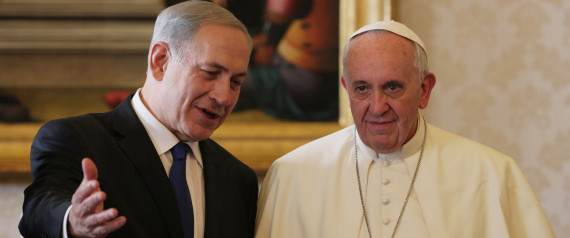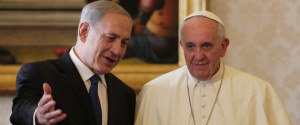With what may seem like two completely different idealogical messages, both Israeli Prime Minister Benjamin Netanyahu and Pope Francis plan to address and perhaps influence the United States Congress.
The U.S. has traditionally in the past feared intervention by the Vatican and in recent history by Tel Aviv.
Former Secretary of State Madeline Albright (D) pulled no punches and stated flat-out in a television interview that the Prime Minister was attempting to sway Congressional mind-sets.
“He is interfering with our internal affairs.” the former Secretary said.
Pope Francis may be the perfect ying to Bibi’s yang with his liberal leaning in stark contrast to Netanyahu’s hard-right conservative bent on his corner of the world.
The Pope has been welcoming to homosexuals and has been warm to other new, liberal ideas on the clergy of the Catholic Church. Pope Francis has expressed empathy for Muslims, supporting their right to be offended by religious humor that could be seen to be in bad taste.
Netanyahu is expected to correlate ISIS Suni extremism to the moderate Shiites of Iran in the hopes to gain support of further sanctions against the nuclear aspiring nation.
Israel, as opposed to other nations in the area has never signed the nuclear agreement “Treaty on the Non-Proliferation of Nuclear Weapons (1968)“ and any weaponry they do have is therefore “undeclared” placing Israel in a unique position of having nuclear weapons but not admitting to them.
Prime Minister Benjamin Netanyahu is set to speak in March, while Pope Francis will address the Congress in September of 2015.



















